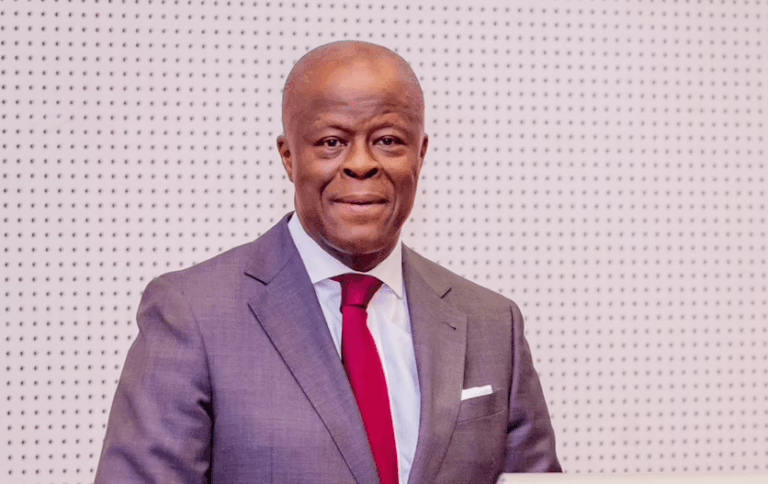The recent resolution of a potentially severe nationwide petrol supply disruption has brought immense relief to Nigerians who were bracing for a crisis.
More critically, there was a looming threat that the government’s economic agenda could be severely undermined by interruptions in the supply of the country’s key commodity, triggering widespread ripple effects across the economy.
This context highlights the pivotal intervention of Wale Edun, Nigeria’s Minister of Finance and Coordinating Minister of the Economy, whose involvement was instrumental in defusing the conflict and preventing a full-blown crisis.
Background of the Conflict
On September 8, 2025, the Nigeria Union of Petroleum and Natural Gas Workers (NUPENG), representing fuel tanker operators, launched a strike targeting Dangote Refinery and Petrochemicals. The strike was prompted by accusations that the refinery was recruiting new drivers under the condition that they abstain from joining any unions-a move NUPENG condemned as a breach of workers’ rights guaranteed by Nigerian labor legislation. Dangote’s management dismissed these allegations as baseless and defamatory, but the dispute heightened tensions within Nigeria’s oil industry.
As Africa’s largest refinery, with a daily capacity of 650,000 barrels, Dangote Refinery has played a crucial role in curbing Nigeria’s dependence on imported petrol. However, its operations have also raised concerns about monopolistic practices and created friction with existing tanker operators, especially regarding plans to introduce trucks powered by compressed natural gas.
The strike received backing from prominent labor organizations such as the Nigeria Labour Congress (NLC) and the Trade Union Congress (TUC). Despite the unrest, Dangote’s spokesperson, Anthony Chiejina, reassured the public that fuel supplies would remain uninterrupted during ongoing negotiations.
Path to Resolution
The dispute was quickly settled through decisive high-level mediation, leading to the immediate suspension of the strike. On Monday, September 8, 2025, the Federal Ministry of Labour and Employment convened a critical conciliation meeting involving NUPENG’s national leadership, representatives from the NLC and TUC, officials from the Nigerian Midstream and Downstream Petroleum Regulatory Authority (NMDPRA), and executives from the Dangote Group. This meeting set the stage for a confidential session chaired by the finance minister, which ultimately brokered the agreement.
READ ALSO: NFF distances itself from post-match criticism of Super Eagles players
The resolution culminated in a binding Memorandum of Understanding (MOU) that reaffirmed union membership as a protected right under existing labor laws. The agreement mandated the immediate initiation of unionization procedures for interested employees within both the refinery and petrochemical sectors, to be finalized within a two-week timeframe (September 9-22, 2025). Importantly, the MOU prohibited the employer from forming any rival unions and guaranteed protection against retaliation for workers involved in the strike. Progress reports are to be submitted to the Minister of Labour one week after the unionization process concludes, ensuring transparency and accountability.
Signatories to the MOU included:
• Dangote Group: Managing Director Sayyu Dantata, Ojimba Jibrin, among others.
• NMDPRA: O.K. Ukoha.
• Labor unions: Benson Upah (Acting NLC General Secretary), N.A. Toro (TUC), NUPENG President Akporeha Williams, and General Secretary Afolabi Olawale.
• Federal Ministry of Labour and Employment: Amos Falonipe, Director of Trade Union Services & Industrial Relations, signing on behalf of the Minister.
This agreement not only averted an immediate fuel supply crisis but also strengthened labor protections within a sector critical to Nigeria’s economic stability, thereby preventing potentially damaging economic consequences.
Wale Edun’s Strategic Role and Economic Implications
Wale Edun’s involvement as Nigeria’s Minister of Finance and Coordinating Minister of the Economy was a decisive factor in the resolution. He led the confidential meeting that directly resulted in the accord, which included representatives from the Department of State Services (DSS) and the NLC. His leadership was key in bridging the divide between the unions and Dangote’s management.
Edun’s participation was significant not only because of his official capacity but also due to the broader economic implications at stake. As the finance minister, he is responsible for fiscal policy and economic stability, while his coordinating role aligns overarching economic strategies. The strike, triggered by NUPENG’s allegations of anti-union practices at Dangote Refinery, threatened to cause fuel shortages and price hikes, which could have derailed the government’s ambitious economic reforms aimed at reducing petrol imports and controlling inflation. Such disruptions would have exacerbated living costs and eroded public confidence in the reform agenda.
By actively engaging in the mediation, Edun underscored the government’s understanding that a prolonged conflict would jeopardize these objectives and negatively impact citizens’ welfare. His involvement lent significant authority to the negotiations, emphasizing the urgency of a swift resolution. This collaborative effort between the Ministry of Finance and the Ministry of Labour ensured the rapid adoption of the MOU, safeguarding both workers’ rights and the economic interests of Nigerians dependent on a stable fuel supply.
Moving forward, this approach should serve as a model for preempting crises that could have profound effects on the nation’s economy and the well-being of its people.
By: Kangiwa Abdullahi


















